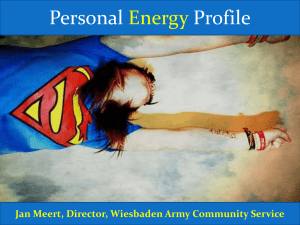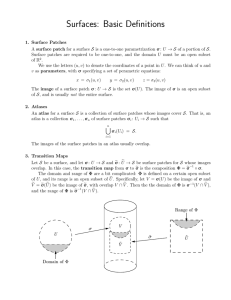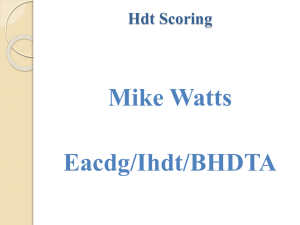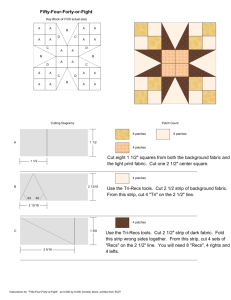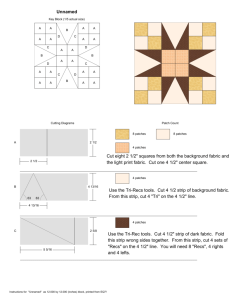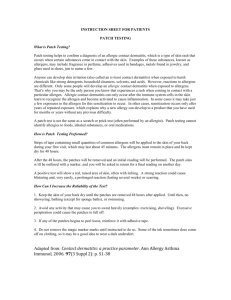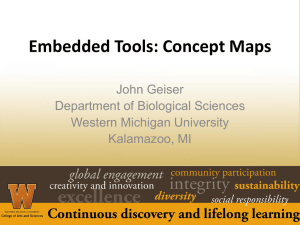Slides (PPT)
advertisement
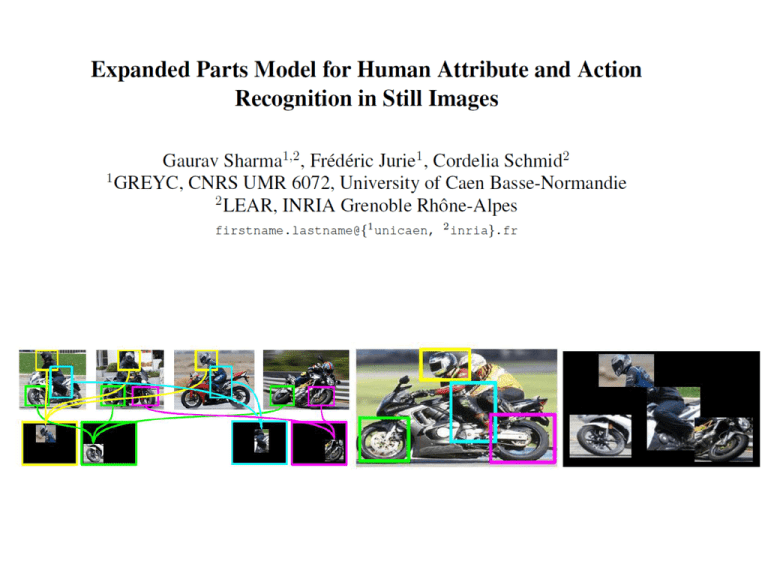
Introduction Problem: Classifying attributes and actions in still images Model: Collection of part templates Specific scale space locations (human centric) Discriminative learning Sparse Activation Motivation Train Test Train Test Overview Mining Parts & Learning Templates Image Scoring Formulation Dataset: Model: fractional multiples of width and height Objective: Model fractional multiples of width and height d = 1000 Part 1 Part 2 Part 3 parts ... Model Model & Scoring Image Scoring Model sparse activation overlap constraint Optimization: Greedy selection of 0.33 overlap constraint Model Initialization 1) randomly sample the positive training images for patch positions: 2) Initialize model parts: perfect case: 3) BoF features worst case: normalized 105 patches. 3) Prunning: remove unused parts Learning k=4 Experiments Willow 7 Human actions 27 Human Attributes (HAT) Stanford 40 Human Actions Implementation Features: – VLFeat - Dense SIFT, • step size: 4 pixels • square patches (8 to 40 pixels) – k-means - vocabulary 1000 – explicit feature map + Bhattacharyya (Hellinger – Square root) kernel Baseline: 4 level spatial pyramid Immediate context: – expand the human bounding boxes by 50% in both width and height Full image context: – full image classifier uses 4 level SPM with an exponential kernel 2 Qualitative Results Willow Actions Database of Human Attributes (HAT) Stanford 40 Actions Learned Parts - I In each row, the first image is the patch used to initialize the part and the remaining images are its top scoring patches Learned Parts - II In each row, the first image is the patch used to initialize the part and the remaining images are its top scoring patches Learned Parts - III In each row, the first image is the patch used to initialize the part and the remaining images are its top scoring patches
